False Premier League football dreams sold in £5m fraud
- Published

Mark Aizlewood, formerly of Cardiff City and Leeds United, was seen as the main player by investigators - using his standing in the game to give the fraud gravitas
More than 3,000 teenagers thought they were "living the dream", believing they would get jobs coaching at Premier League football clubs.
But it was all a £5m youth training scheme fraud with former Wales star Mark Aizlewood at its helm.
The closest the youngsters got to the big time was handing out programmes on match day or sweeping changing room floors.
"Many of those enrolled were living the dream - thinking they would be coaches for clubs like Manchester City and gain an NVQ in activity leadership," a Serious Fraud Office (SFO) spokesman said.
"But it was a farce."
Following a four-month trial at Southwark Crown Court, four men were found guilty. Two others admitted charges before it started.
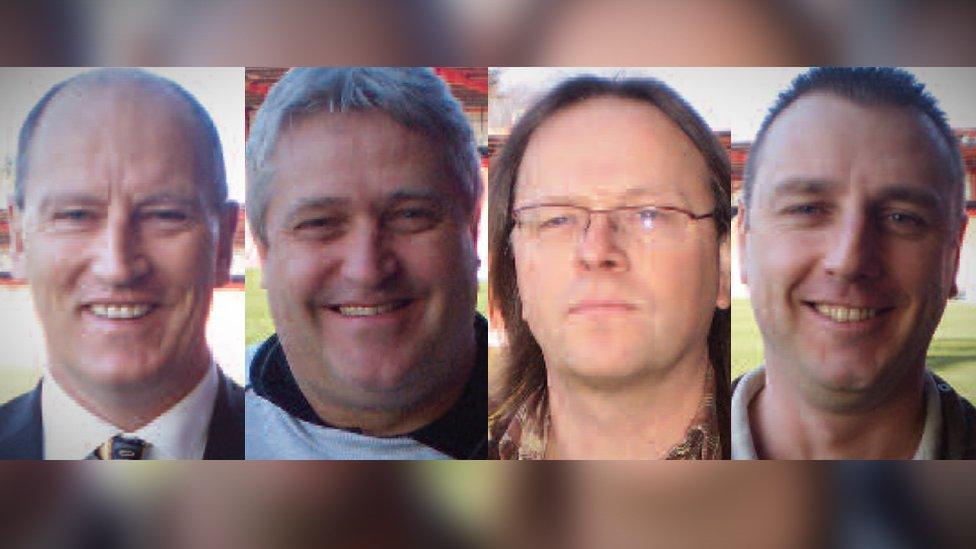
The four directors of Luis Michael Training: Mark Aizlewood, 57, former Cardiff City player Paul Sugrue, 56 and Keith Williams, 45, from Anglesey, denied charges. Chris Martin (third from left), admitted them before the trial
Directors Paul Sugrue, 56, from Cardiff, and Keith Williams, 45, from Anglesey, were both found guilty of two counts of conspiracy to commit fraud by false representation.
Mark Aizlewood, 57, of Aberdare, Rhondda, Cynon Taff, was found guilty of one count and fellow director, Christopher Martin, 53, of Catmore, West Berkshire, admitted both counts before the trial started.
There were two other men involved. Jack Harper, 30, of Merseyside, was found guilty of fraud and using a false instrument.
And Stephen Gooding, 53, from Bridgwater, Somerset, admitted conspiracy to commit fraud by false representation before the trial.
Luis Michael Training - named after Sugrue's father and stepson - was set up as a vehicle for the fraud to gain money from the Skills Funding Agency (SFA).
It targeted government cash earmarked to help youngsters not in employment, education or training improve their lives.
Yet, between October 2009 and December 2010, Sugrue pocketed £516,000, Aizlewood £424,000, Gooding £448,000, Harper £311,000, Williams £295,000 and Martin £249,000.
After a whistleblower alerted Gwent Police in November 2011, the SFO spent more than four years collecting 5.2 million pieces of evidence and interviewing 600 people.
The prosecution presented 237,000 pages to the jury and called 61 witnesses to give live evidence.
Despite this, investigators described it as a relatively simple fraud - with those involved knowing which government cash pot to exploit before forging a lot of paperwork.
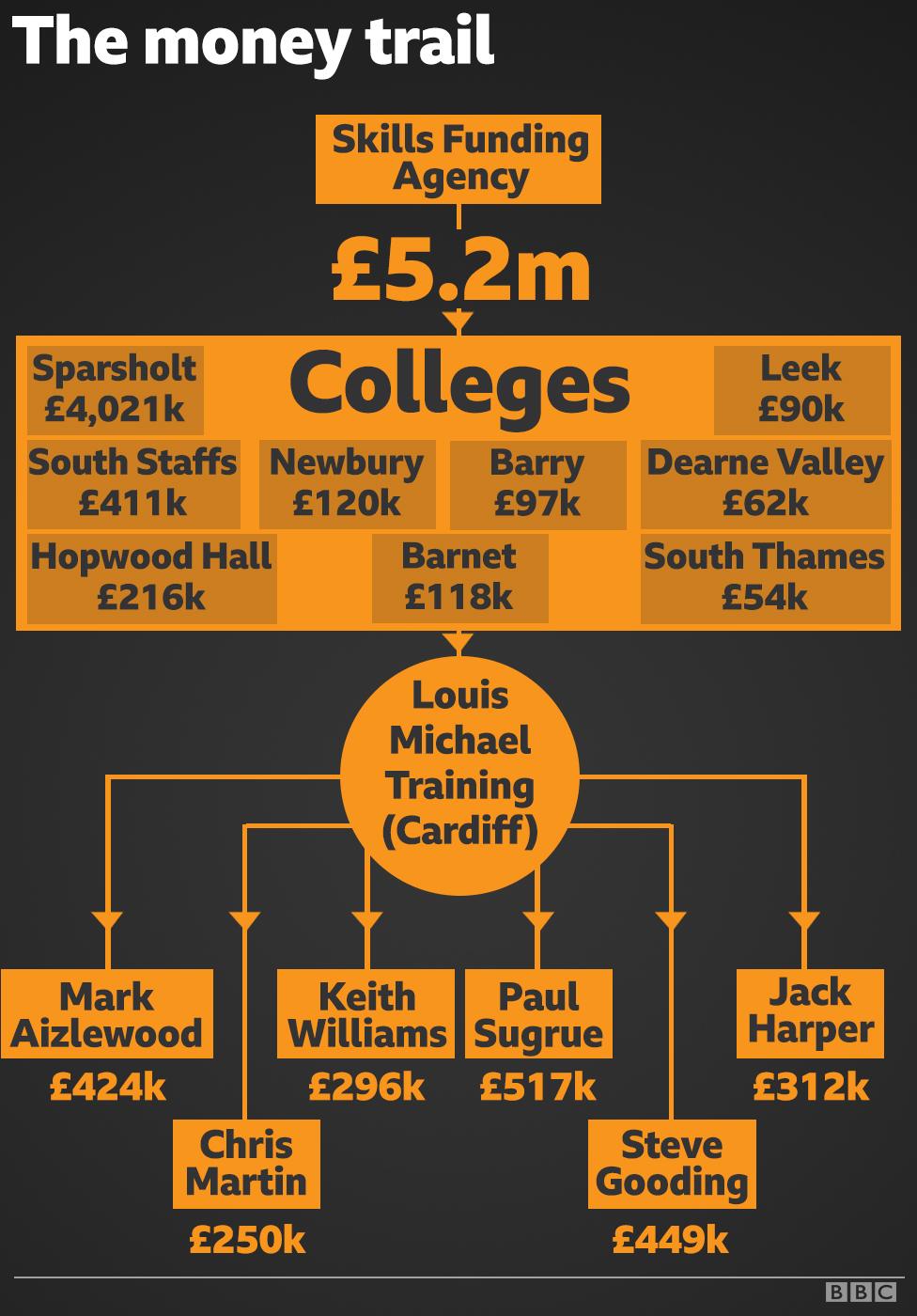
Headquartered in Cardiff, Luis Michael Training established links with nine colleges which recruited many of the youngsters and applied for the funding.
Sparsholt College in Hampshire was the most involved, gaining £4m of SFA cash in 2009-10.
It then handed the money to Luis Michael Training, which promised to train the teenagers to work as coaches in the community or with the charitable arms of big clubs.
This was supposed to entail paying the youngsters £95 and giving them 30 hours training each week, and helping them produce a portfolio, sit literature and maths exams, as well as gaining an NVQ qualification in activity leadership.
Using his standing in the game, Aizlewood was also able to get many major clubs involved.
"He was an ex-international footballer, he knew the industry and how the system worked," the SFO spokesman added.
"And his gravitas helped them to get in with colleges, football clubs and learners."
Aizlewood took youngsters on to the pitch at Leeds United and Bournemouth, allowing them to get a taste for the big time by having a shot at goal.
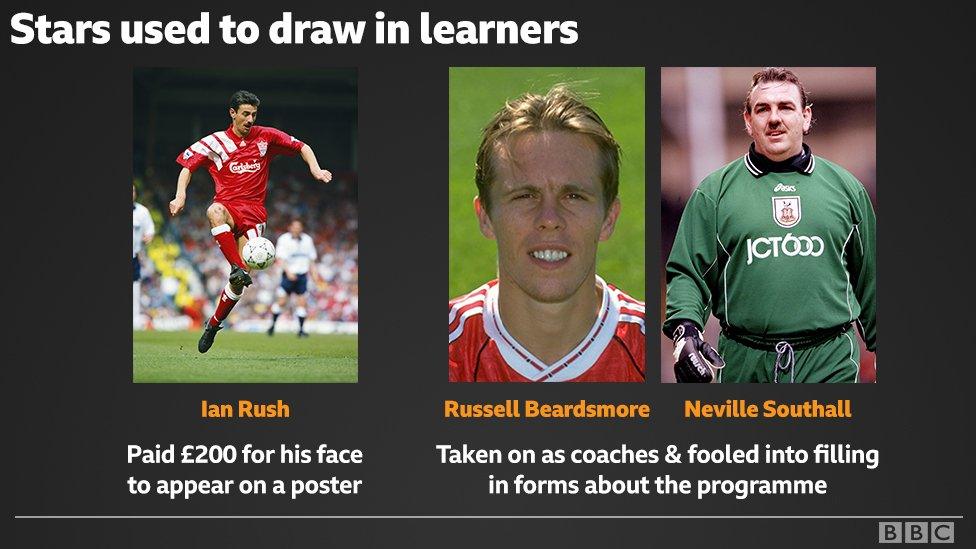
Stars of the game leant their name to the initiative unwittingly and became prosecution witnesses when the fraud was uncovered
Clubs such as Manchester City and Sheffield Wednesday were offered £10,000 to allow them to train at their facilities, while former Wales striker Ian Rush was given £200 to endorse the programme.
High profile tutors were also hired - such as former Wales goalkeeper Neville Southall and Manchester United midfielder Russell Beardsmore.
But both men, who were not implicated and gave evidence at the trial, did little more than have a kick about and were fooled themselves into signing documents about trainees.
In total, the SFO found 3,008 learners aged 16 to 19 that were affected, but believes there were probably many more.
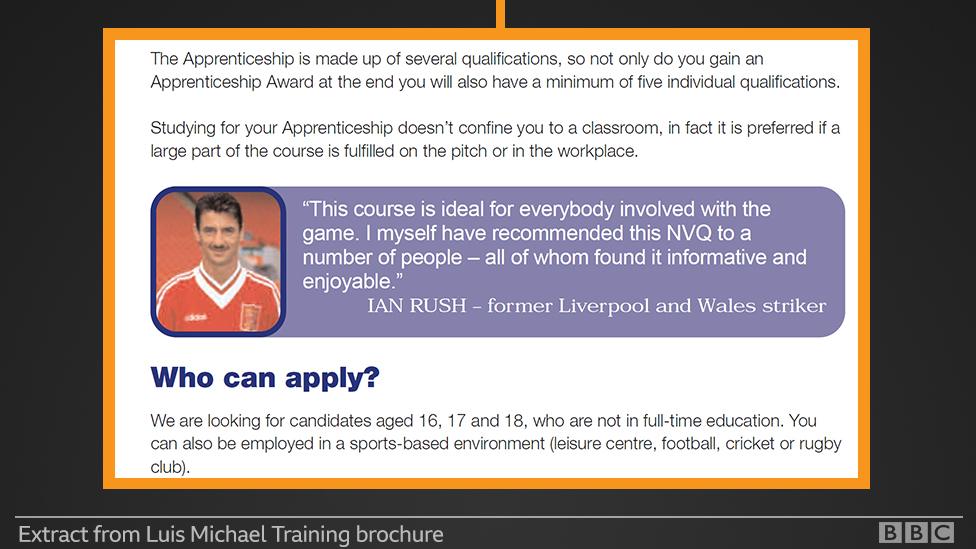
Ian Rush was duped into recommending the scheme to youngsters
The teenagers were supposedly placed to train at clubs ranging from the big names to Weymouth FC, Cheadle Town FC and Neath RFC.
However, investigators described the reality for them as "stark" and a world away from the vision sold.
Many were from very poor backgrounds and had suffered adverse life experiences, with 75% not in education.
The government cash was therefore aimed at transforming their lives and engaging them through football.
But many did not receive the £95 per week promised and struggled to feed newborn babies or buy Christmas presents.
And those that were given roles with clubs were not involved in coaching but handing out match day programmes or sweeping changing room floors.
Logistically, most would not have even been able to complete the programme.
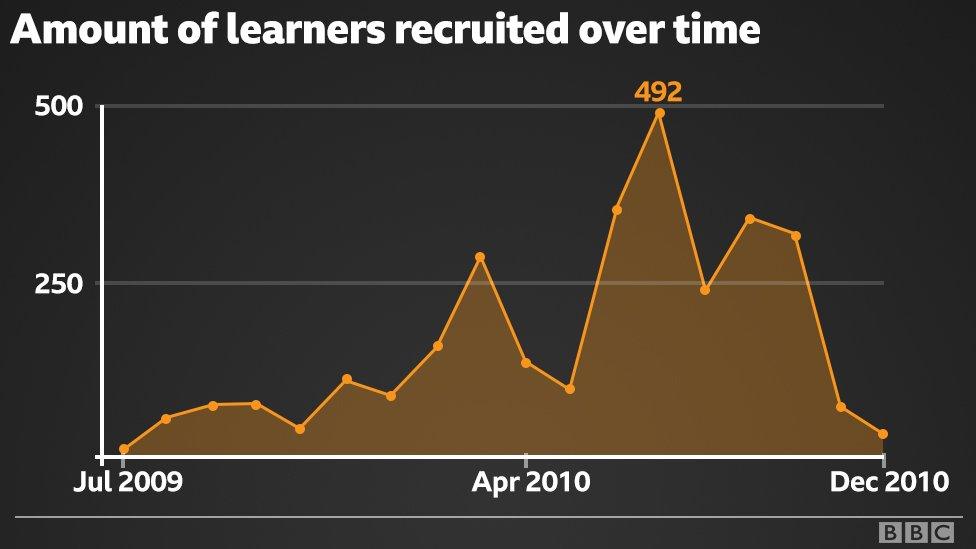
Investigators looked at how many youngsters were recruited each month - with numbers starting small and growing as the men grew confident before falling as suspicions were raised
Youngsters enrolled at Sparsholt College in Hampshire were assigned work at a nearby subsidiary set up by Luis Michael Training called Minerva Coaching and Development.
However, investigators found many of these lived in Manchester and Wigan - 220 miles (350km) and nearly four hours away - making their presence there daily logistically almost impossible.
In fact, many enrolled on schemes were receiving one or two hours training a week instead of the promised 30.
The Cambridge and Oxford awarding bodies were also told portfolios had been completed when they had not, while progress reports, exam papers and documentation were forged.
Much of this was done unwittingly by sixth form pupils from a school in Rhondda Cynon Taff, who were enrolled through a different scheme Aizlewood and Sugrue operated in south Wales for schoolchildren.
Either on work experience or paid £95 per day, they simply duplicated exam papers and portfolio work.
However, when Sparsholt College gained funding for a further 200 learners and Luis Michael Training said it could fill the places, the deception moved on to a whole new level.
The defendants took the cash but started making up "ghost learners" - names of youngsters who did not exist.
They created fictional addresses, applications and coursework to gain the funding - with investigators estimating 30% of names on courses were simply made up.
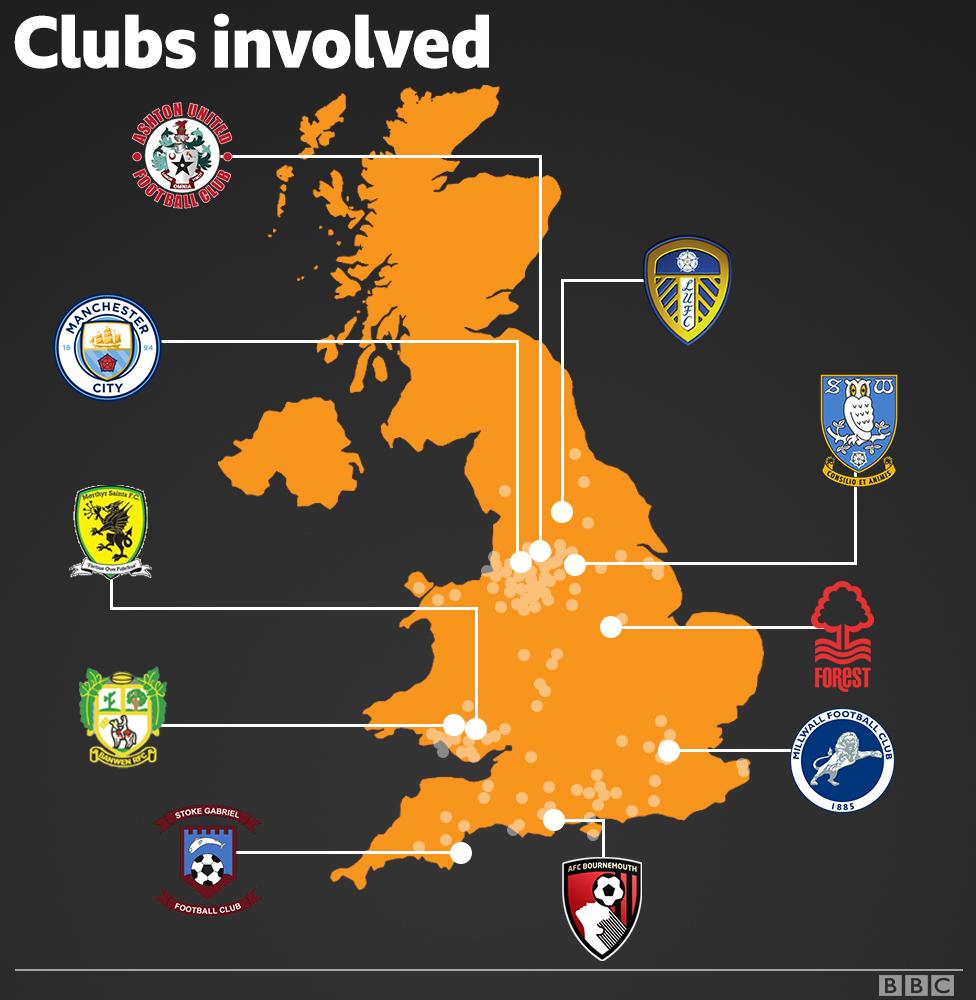
Investigators found 3,008 learners, who were said to be given training at 141 sporting institutions in England and Wales. The most were purported to be at Sheffield Wednesday (100), Ashton United (90), Stoke Gabriel (80) and Manchester City (54) football clubs while training bases for 282 learners could not be determined
Police looked at the lifestyles of those involved and, while they were not lavish, they were found to be driving around in new Range Rovers, taking holidays to Paris and shopping in Harrods.
However, if the deception had continued, the £5m paid in 2009-10 would have been raked in every year, with the sum taken by the men becoming an annual income.
But after a whistleblower employed to work at Sparsholt College realised something was not right and went to the authorities, it had devastating consequences not just for the youngsters but the institutions involved.
The scheme was mothballed and the government claimed back the cash from the colleges, meaning Sparsholt had to cancel the planned building of a new sports hall.
Some football clubs also lost up to £30,000, meaning they had to rein in their charitable work.
Mark Aizlewood was seen by investigators as the main controlling figure, using his standing in the game.
However, all the defendants blamed each other - until Chris Martin pleaded guilty before the trial, at which point the finger was pointed at him.
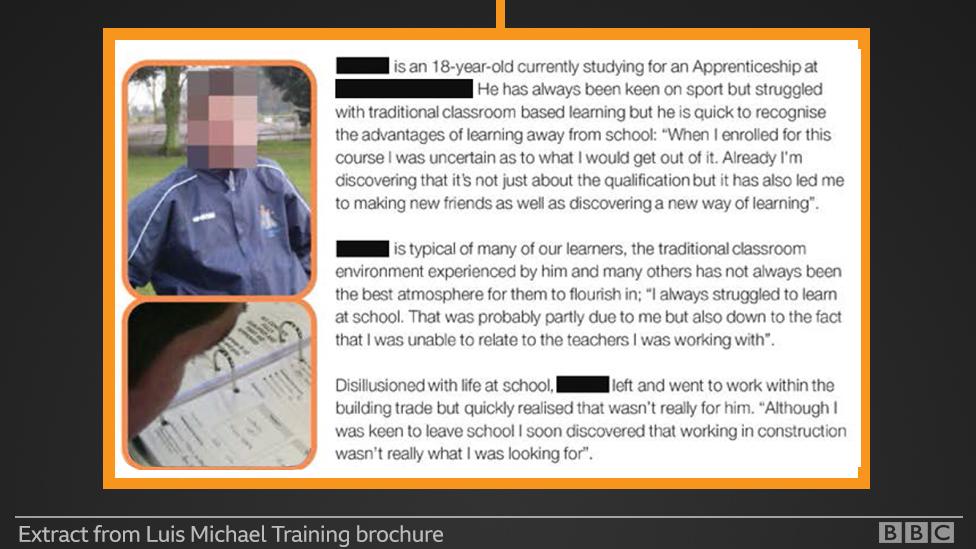
The scheme was sold in the brochure as a way for youngsters to better their lives through football
While the men are looking at custody, investigators painted a picture of the young victims called to court to give evidence.
The spokesman said: "Many of the learners were having trouble putting food on the table for their families.
"They then had to attend court and were nervous and scared of what that meant.
"Instead of transforming their futures, this ordeal had made many of them even more vulnerable."
The scheme at the centre of the fraud - the SFA - has since been wound up and replaced with other support mechanisms by the Department for Education.
Sparsholt College has taken all its football schemes in-house since the deception.
"We condemn the deliberate deceit and criminal actions of these fraudsters who have either admitted their guilt or been convicted and we hope this acts as a deterrent to others," said its principal Tim Jackson.
He said the "prompt actions" of its staff in reporting concerns to the authorities prevented the fraud from escalating.
Mr Jackson added: "The college worked tirelessly to ensure as many as possible of those learners who were let down by the fraud in 2010 were able to complete their apprenticeships and we had very good support from government agencies in that task."
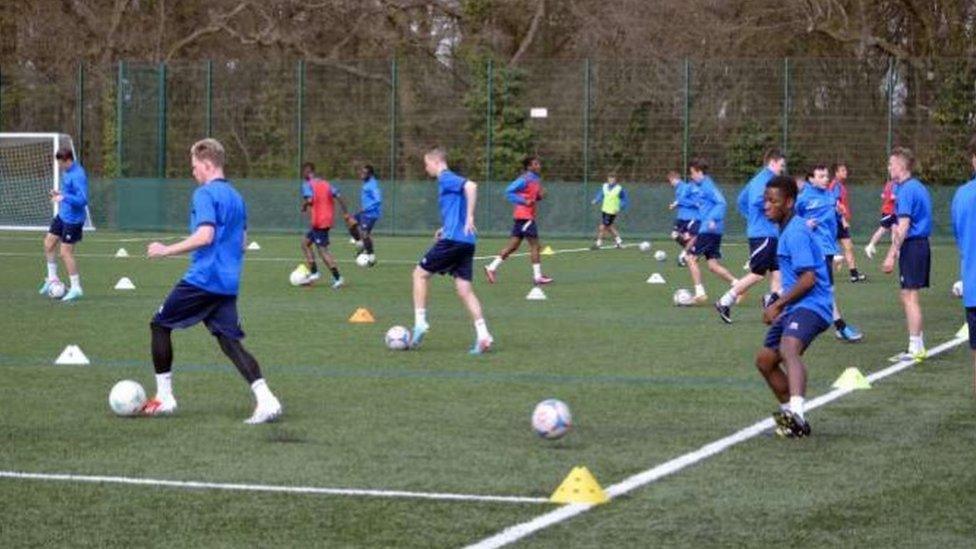
Young football players train at Chelmsford College
According to Dave Cornwell, who runs the football academy at Chelmsford College, providing as many career options for youngsters as possible is the key.
Describing football as a notoriously difficult industry to break into, he said credible schemes should prepare them to be able to work in other sectors if their ultimate dream does not become reality.
While it predominantly recruits those aspiring to make it as players, coaching and other careers in the industry are major possibilities.
"The really good thing is not many (aspiring footballers) go to university," he said.
"But we have contacts, where they can go to America, for example (to study and play).
"But the main thing is that the college offers 20 different apprenticeship programmes, so if they finish and don't want to stay in sport, they can go straight into employment."
Soccer Elite FA has an academy with 800 youngsters aged two to 16, while its Ramsgate FC Apprenticeship Scheme sees boys paid £350 a month, while playing regularly and studying for BTEC qualifications.
Managing director Rich Radbourne does not get funding if the youngsters do not attend classes, meaning if coursework is not finished he does not allow them to take part in the football side.
He said this discipline is key and helps youngsters plan for a life outside the sport.
While such schemes are grounded in realism, Luis Michael Training not only sold false visions of working in the big time at Premier League clubs, by forging academic work, trainees were not even afforded the consolation of a qualification to help find work in other sectors.
The men will be sentenced later in February.
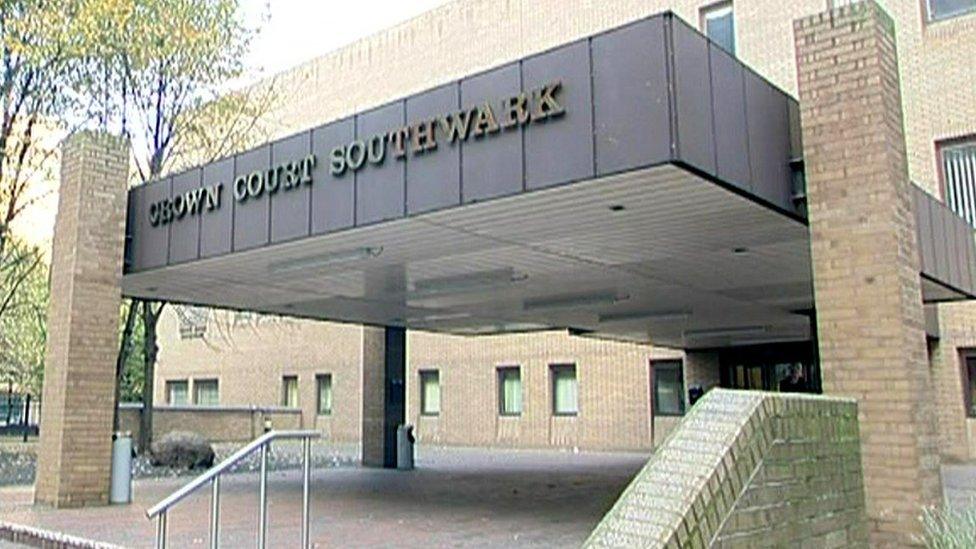
The trial took place over four months at Southwark Crown Court
- Published5 February 2018
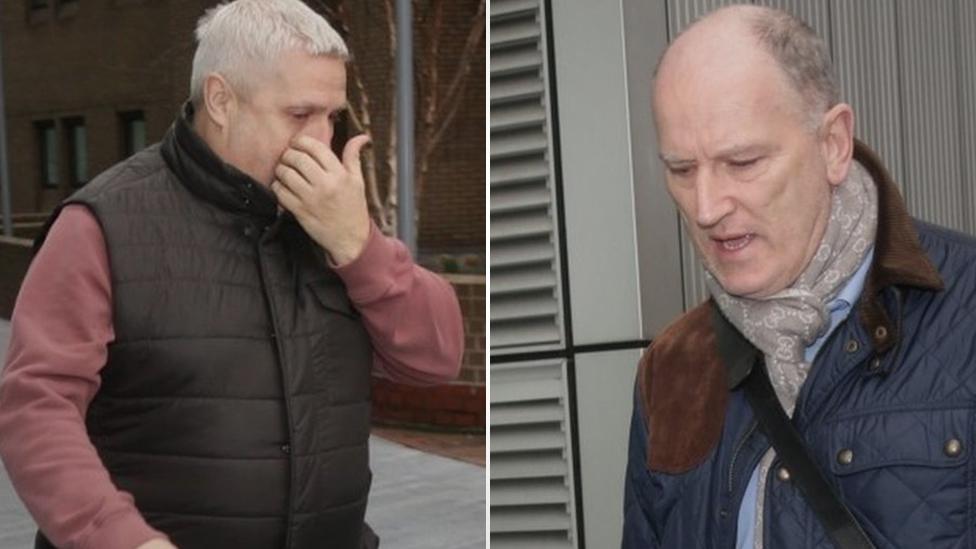
- Published23 November 2017
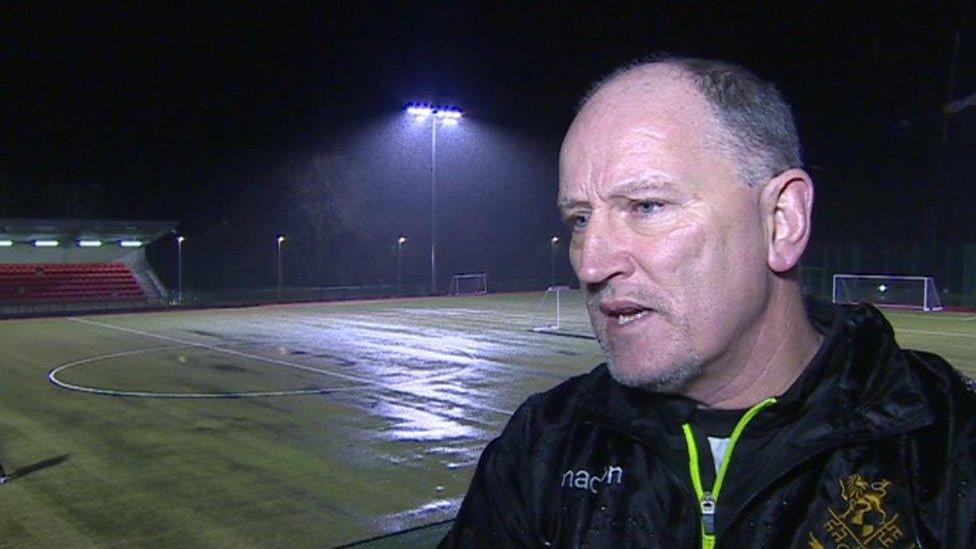
- Published7 September 2017

- Published10 October 2016

- Published4 May 2016
